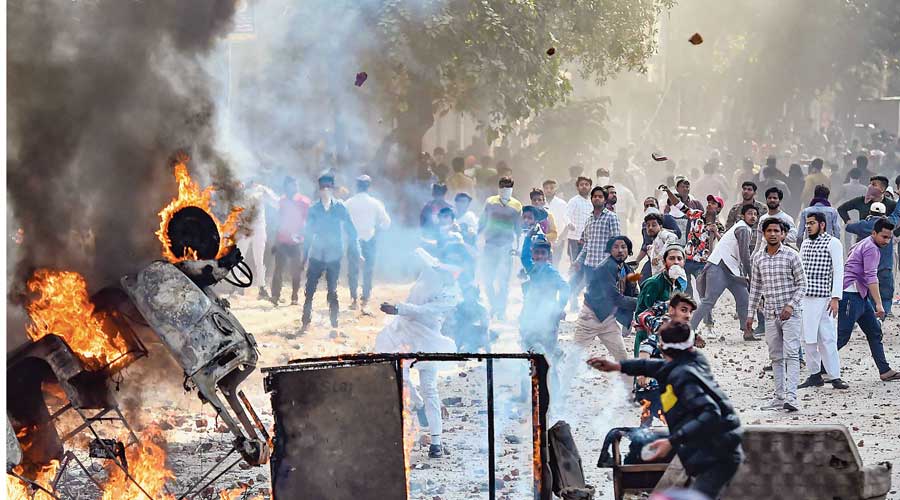Surprise is not an element of the report on the 2020 riots in North-East Delhi compiled by a group of citizens, many of them well-known. Instead, the inferences that the investigators have drawn from the testimonies of residents of the affected area, lawyers and social workers shore up the impressions that observers had gathered at the time. The conclusions point towards the underlying tensions that led to the violence. The strongest condemnation is reserved for the Delhi police — for lying low as threats were made and the riots began, their acts of omission and commission that allowed the riots to rage while they refused to move against the instigators, especially powerful people, and did not protect the victims, for misusing technology, drawing up unjust charge-sheets, and for bias in the ensuing investigation. The state government, too, came in for censure, especially because of the failure of the compensation system and its inability to bridge the communal divide.
The report should be seen in the context of the Centre’s earlier claim, through the deputy home minister, that the Delhi police had been fair, impartial, dedicated and effective. This puts the government squarely behind the police being criticized, as well as the administration and health network which are also shown to have failed. Perhaps because of the bold claims of the present government, the connection between partisan governments and communal conflicts is laid out clearly. Without silent — or not so silent — support from the regime in power, the arms of the State cannot act in a biased manner. Law and justice become irrelevant in this setting, and are rarely recovered in hindsight. The 1984 riots, mentioned in the report as those in which accountability was not fixed, or the Gujarat riots, exemplified the same phenomena — accountability is not fixed, or the police indulge freely in acts of omission and commission, precisely when there is an unspoken assurance from, and a bias in, the reigning government.











